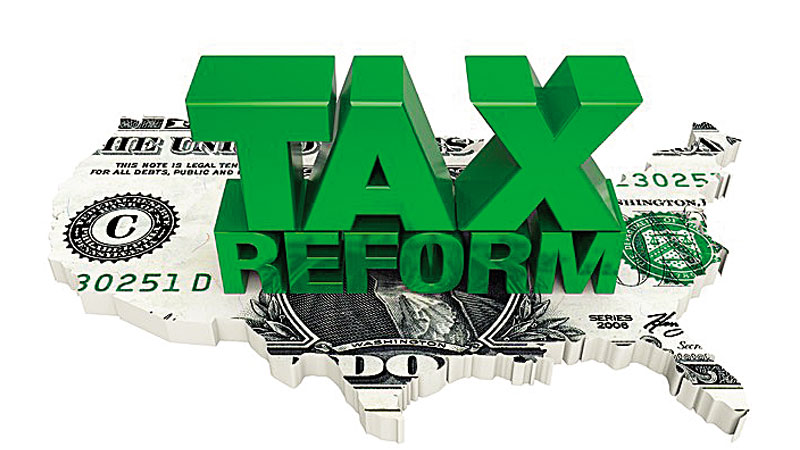Zafar Iqbal
A narrow tax base, high tax rates, and widespread tax evasion characterize Pakistan’s tax system. This has resulted in low tax revenues, which has limited the government’s ability to invest in public services and infrastructure. This has had a negative impact on economic development and social stability. Therefore, there is a dire need to address these challenges. Accordingly, Pakistan needs to implement comprehensive tax reforms by qualitatively legislating and subsequently implementing the legislation and delegated legislation. These reforms should be aimed at broadening the tax base, reducing tax rates, and improving tax administration.
Broadening the tax base:
Pakistan’s tax base is one of the narrowest in the world. Only a small proportion of the population pays income tax, and many businesses operate in the informal sector. This means that a large portion of the economy is not contributing to tax revenues.
There are a number of ways to broaden the tax base. One is to introduce a value-added tax (VAT). A VAT is a consumption tax that is levied on the value added to goods and services at each stage of the production and distribution process. A VAT is a broad-based tax that can help to capture tax revenues from the informal sector.
Another way to broaden the tax base is to eliminate tax exemptions and deductions. Many businesses and individuals in Pakistan benefit from tax exemptions and deductions, which reduces the amount of tax they pay. Eliminating tax exemptions and deductions would make the tax system fairer and more efficient.
Reducing tax rates:
Pakistan’s tax rates are relatively high. This has led to widespread tax evasion and has discouraged investment.
The government should reduce tax rates, particularly income tax rates for businesses and individuals. This would make the tax system more attractive and would encourage investment and economic growth.
Improving tax administration:
Pakistan’s tax administration is inefficient and corrupt. This has led to widespread tax evasion and has made it difficult for businesses to comply with tax laws.
The government needs to improve tax administration by investing in technology, training tax officials, and reducing corruption. This would make it easier for businesses to comply with tax laws and would reduce tax evasion.
Impact on economic development and economic, social, cultural and political stability:
Comprehensive tax reforms would have a number of positive benefits for Pakistan. First, tax reforms would help to increase tax revenues. This would give the government more resources to invest in public services and infrastructure. This would have a positive impact on economic development and social welfare. Second, tax reforms would help to create a more level playing field for businesses. This would encourage investment and economic growth. Third, tax reforms would help to reduce corruption and improve governance. This would create a more stable and predictable environment for businesses and would attract foreign investment.
Overall, comprehensive tax reforms are essential for Pakistan’s economic development and social stability. The government should take steps to broaden the tax base, reduce tax rates, and improve tax administration.
Please, subscribe to the monthly magazines of republicpolicy.com
Specific tax reforms
In addition to the general reforms outlined above, Pakistan could also consider the following specific tax reforms:
Introduce a digital services tax. This would tax the revenue that digital companies generate in Pakistan.
Tax the wealthy more heavily. This could be done by increasing the income tax rate for high-income earners or by introducing a wealth tax.
Tax property more effectively. This could be done by improving the property tax system and by introducing a capital gains tax on property sales.
Reduce the number of tax exemptions and deductions. This would make the tax system fairer and more efficient.
Improve the efficiency of tax collection. This could be done by investing in technology and training tax officials.
Implementation challenges:
Implementing comprehensive tax reforms will be challenging. Businesses and individuals who benefit from the current tax system will be resistant. The government will also need to invest in tax administration and capacity building. However, the benefits of tax reforms are worth the challenges. Tax reforms can help to increase tax revenues, promote economic development, and improve social welfare. Accordingly, the taxation departments are critical for the implementation of the tax reforms. Therefore, the federal and provincial organizations and human resources need reformation and incentive-based remuneration.
Concludingly, one possible method to implement the taxation reforms in Pakistan is to adopt a broad, flat, low-rate and predictable tax system that would simplify the tax laws, reduce the tax exemptions and concessions, harmonize the federal and provincial taxes, and enhance the tax compliance and administration. This method would aim to broaden the tax base, lower the tax rates, eliminate distortions and inequities, and improve the transparency and accountability of the tax system. This method would also encourage economic growth, investment, and entrepreneurship, as well as the social welfare and justice of the taxpayers. This method is based on the principles of optimal taxation and the experiences of successful tax reforms in other countries.
Lastly, tax reforms are essential for Pakistan’s economic development and social stability. The government should take steps to broaden the tax base, reduce tax rates, and improve tax administration. The government should also consider specific tax reforms, such as introducing a digital services tax, taxing the wealthy more heavily, and taxing property more effectively.
Implementing tax reforms will be challenging, but the benefits are worth the costs. Hence, there are no tax reforms until these are implemented in letter and spirit.
Please, subscribe to the YouTube channel of republicpolicy.com
















